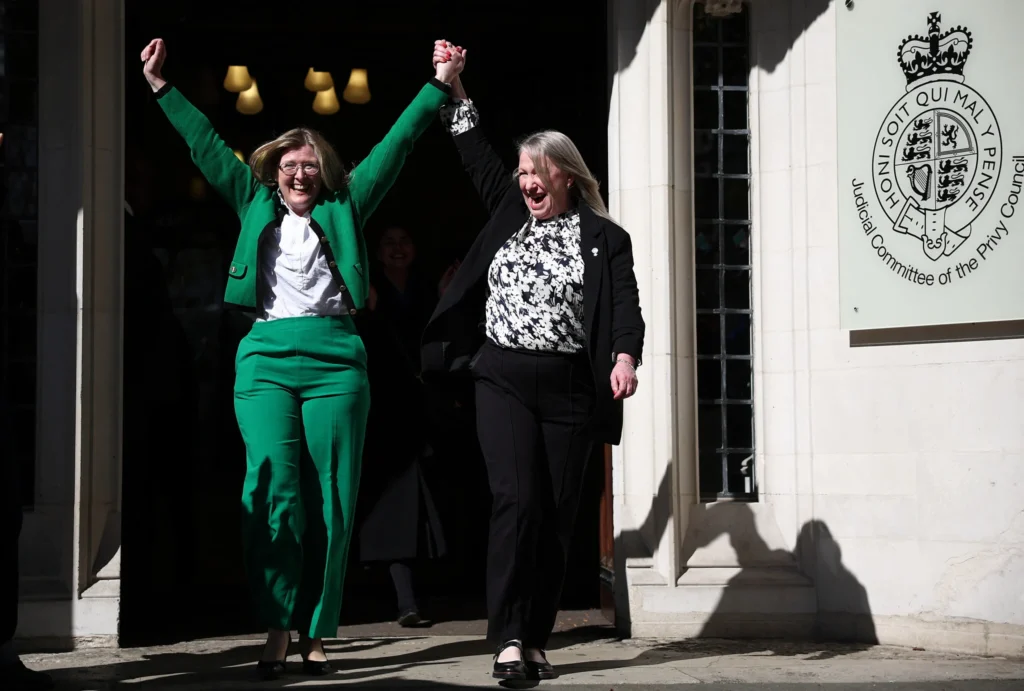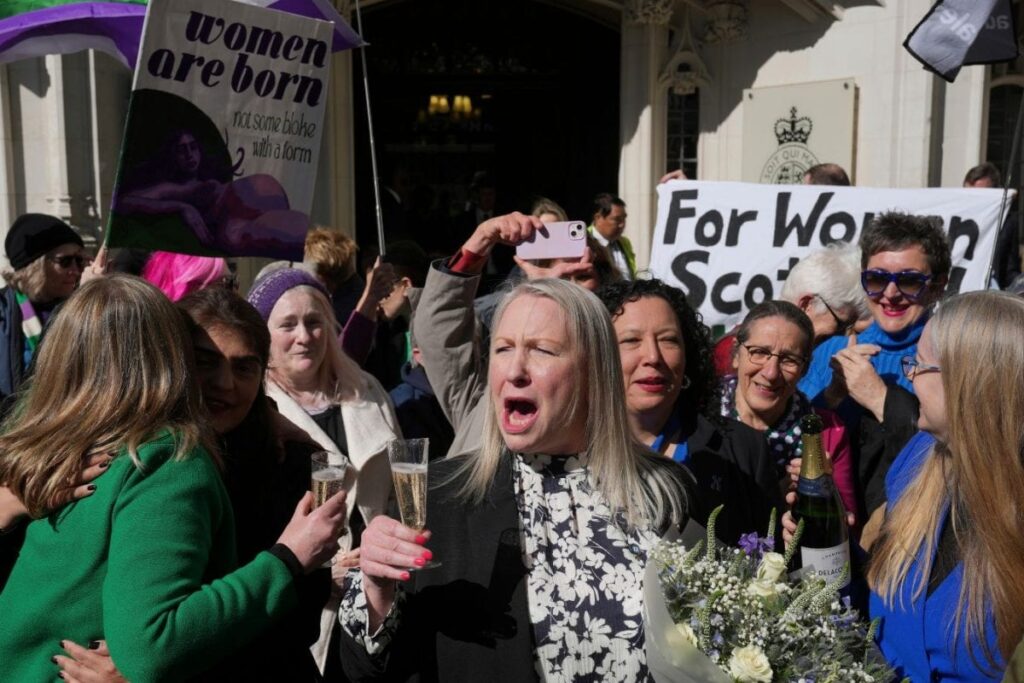On 16 April 2025, the UK Supreme Court made a big decision. The court ruled that a “woman” is biologically female in the country’s laws. This means that transgender women (those who were assigned male at birth but identify as women) are not included in the legal definition of “woman” under the Equality Act 2010. So, what does this ruling mean for trans rights?
What Did the Court Decide?
The Supreme Court said that the term “woman” only includes biological females. This means that trans women, even those with Gender Recognition Certificates (GRCs), are not included in this legal definition. The Equality Act 2010 is one of the UK’s most important laws about fairness. It protects people from unfair treatment based on things like sex, race, and disability.
This case began because the Scottish government included trans women in quotas for public boards. A group called For Women Scotland disagreed. They argued that the law should be based on biological sex. The Supreme Court agreed with them. This decision ends a long legal fight.
The court also said that this ruling will affect how single-sex spaces, like women’s shelters and bathrooms, work going forward.
What Changes in Single-Sex Spaces?
This ruling means big changes for single-sex spaces, like bathrooms and hospital wards. It says that these spaces should follow rules based on biological sex. For example:
- Women-only shelters may no longer accept trans women.
- Sports teams may no longer allow trans women to compete in female events.
- Hospitals and the police must also follow these new rules.
Some public institutions are already updating their policies. For instance, the NHS and British Transport Police are changing how they handle single-sex spaces. However, this ruling has also left some questions unanswered. It is unclear how trans women who have medical or social transitions fit into some of these policies.

How Are People Reacting?
This decision has caused mixed reactions. Some groups are happy, while others are upset.
Supporters of the Ruling
Groups like For Women Scotland celebrated the decision. They believe that it protects women’s rights based on biological sex. Supporters say that women should feel safe in spaces meant only for them. They think this ruling brings clarity and fairness.
The UK government also said the ruling provides clear rules. They support the idea that single-sex spaces should be protected by law.
Critics of the Ruling
On the other hand, trans rights groups are very concerned. Groups like Stonewall say this ruling could lead to more unfair treatment of trans people. They worry that trans women will now feel excluded from important spaces and services.
Activists also say this decision might undo years of progress for trans inclusion. Many are calling for new laws to better protect the rights of trans people.
What Does This Mean for Trans Rights?
Even with this new ruling, trans people still have some protections. The Equality Act 2010 includes protections for “gender reassignment.” This means trans people are protected from discrimination because of their transition. However, they no longer have the same legal rights as biological women in single-sex spaces.
The Gender Recognition Act 2004 also allows trans people to get GRCs. However, this ruling limits what a GRC can do. For example, it no longer lets trans women access spaces meant only for biological women. Many activists feel this weakens the law.
What Happens Next?
This decision means many changes are coming. Public institutions, like schools and businesses, will need to follow the new rules, and some organizations may need help understanding how to handle these changes.
Legal experts say the government needs to update equality laws. They want new rules that balance the rights of women and trans people. Some are suggesting ideas like adding more unisex spaces. These could work for everyone without causing exclusion.

Why Is This Important?
This case is about more than just the law. It has sparked a bigger debate about gender, fairness, and safety. Some people feel this ruling protects women’s spaces. Others feel it excludes trans people and adds to their struggles.
The ruling has also added to the “culture wars” in the UK. These are public arguments about issues like gender and identity. Similar debates are happening in the United States and other countries.
Many worry that the ruling could encourage more legal challenges to trans rights. Trans activists are planning protests and will keep pushing for better protections.
Conclusion
The Supreme Court’s decision is historic. It defines the word “woman” in a way that impacts law and life. Supporters of the ruling see it as a victory for women’s rights. But critics believe it creates new challenges for trans people.
The road ahead is uncertain. However, one thing is clear. Society must work together to find solutions that are fair for everyone. Doing so can build a future where everyone feels valued and safe.
Thank you for reading, click the link to read more of our Most Recent articles




Leave a Reply
You must be logged in to post a comment.